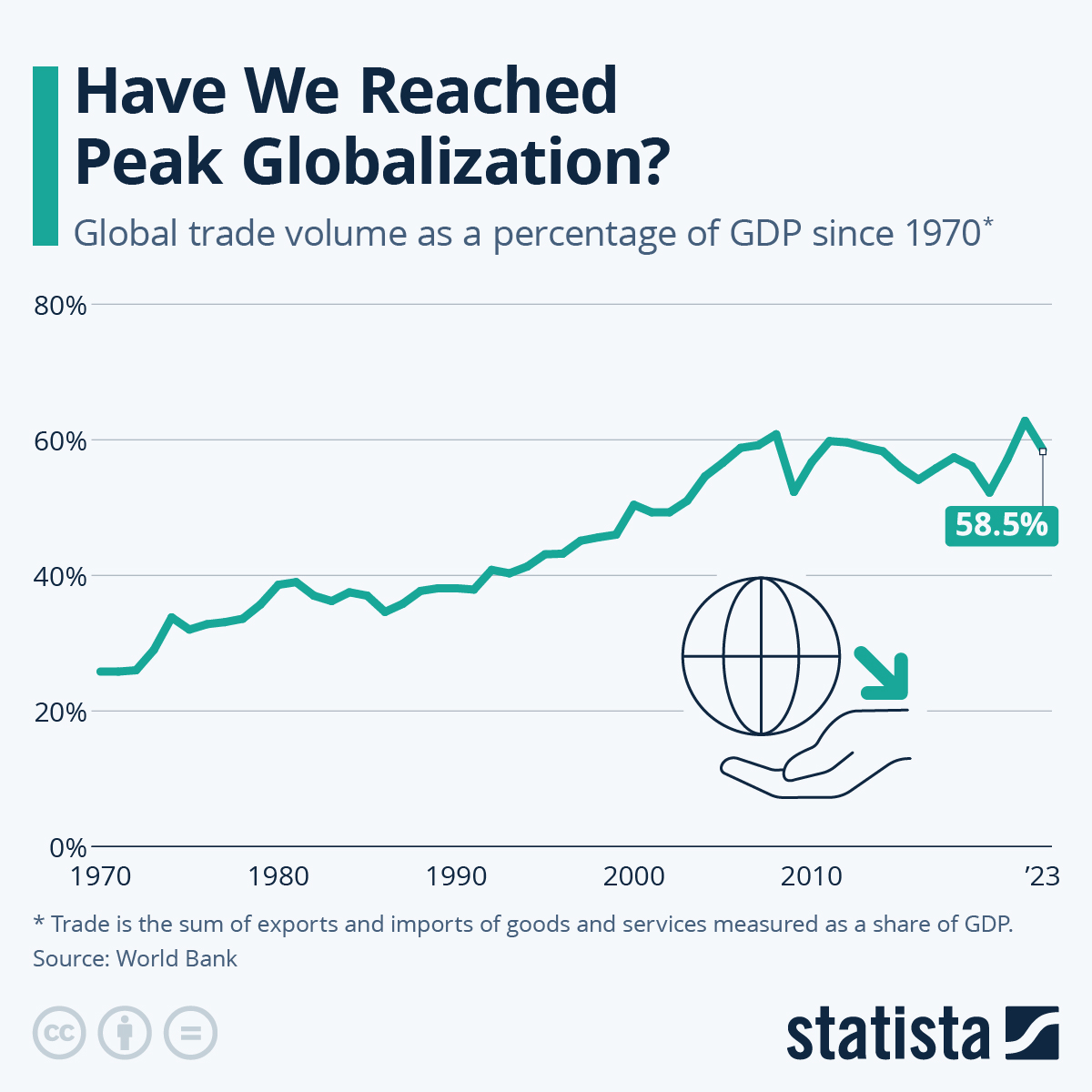According to estimates from the World Trade Organization, world merchandise trade is set to plummet between 13 and 32 percent this year, depending on how quickly the coronavirus is contained and trade can return to pre-crisis levels. “These numbers are ugly - there is no getting around that. But a rapid, vigorous rebound is possible," WTO Director-General Roberto Azevêdo said in a press release on the matter, while emphasizing the role of free trade on the road to recovery. “Keeping markets open and predictable, as well as fostering a more generally favourable business environment, will be critical to spur the renewed investment we will need. And if countries work together, we will see a much faster recovery than if each country acts alone."
As the following chart based on World Bank data shows, global trade volume - measured here as a percentage of global GDP - has been relatively stagnant for years, after several decades of uninterrupted growth. Following the trade decline caused by the global financial crisis in 2009, world trade never returned to its previous growth trajectory and many are expecting a similar long-term effect of the current crisis. Having reminded many companies of the vulnerabilities of global supply chains, both the pandemic and the trade war between the U.S. and China could lead companies towards a more domestic approach to production and sourcing, which might result in a sustained reduction of global trade.
You will find more infographics at Statista.

No comments:
Post a Comment